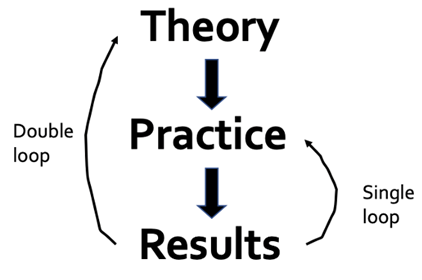Posted by Colin Weatherby 740 words

I am sure being a CEO isn’t easy. The political environment in Australia is difficult and even more so in local government where the politicians are unpaid and not supported by political parties. There are many other pressures from the external environment – i.e. changing State government legislated responsibilities and increasing oversight of council operations; contentious urban growth and renewal planning decisions; inadequate State services for transport, education and health; and changing community expectations of service. So, if it was me, what would I do?
To begin I would not let the limitations and problems of the political and external environments dominate my management of the organisation. They are both urgent and sometimes important. However, they are not easily influenced and can take all of top management’s time and energy for little return. By all means be engaged and influence where you can but my approach would be to put my effort where no one else can and where I will get the best return.
By doing this, I think there would also be an improvement in the political environment and a stronger position to tackle the external pressures.
What do I mean? I would get my house in order. I would ensure that the resources at my disposal are used to create the maximum value for the community that has provided them. My goal would be for every ratepayer and resident to love living in my municipality. They would love it so much that they would tell all of their friends about it. They would offer to pay more for the services that they or their neighbours need. Every day social media would have stories of the great experiences people have had dealing with the council and the surprisingly good value they received.
Expectations would be met for basic service and exceeded where the value is visible and appreciated. This is the value capture that Sayan Chatterjee talks about – councils don’t want people to value the services they provide and to offer to pay more so that the council can make a profit. Councils are not in that business. Instead, councils want them to be loyal customers who enjoy the value they get from paying their taxes. That enjoyment and loyalty is the value capture.
I wouldn’t ignore the outside world but I would want to be leading an organisation that redefines community expectations and delivers outstanding value. Here is how I would do that in order.
- Provide a more inclusive and less autocratic management style that suits local government culture and organisations expected to work that way with their customers.
- Set clear strategy – who are/are not customers; what service will/will not be provided to them; and how will it be done efficiently using available resources.
- Improve the customer focus by putting customers first (I mean really putting them first, not just saying it) through understanding the value they expect and designing services to provide it within available resources, now and in the long-term.
- Create better processes to make decisions and delegate more decision making and empower staff throughout the organisation so that more decisions are made and faster.
- Establish greater accountability by setting expectations and measuring performance so that feedback is provided to support achievement and create a performance-orientated culture.
- Focus innovation on areas of the organisation where significant change is required and set up systems to so that everyone continuously improves.
- Simplify the complexity inherent in local government by identifying and eliminating process constraints that have developed over time.
- Focus on productivity by ‘unlocking’ the capacity of people and resources to ensure that the required services are being provided as efficiently as possible.
I have been told (by a CEO) that a world where ratepayers and residents enjoy the value they get for the taxes is unrealistic and unachievable. If that is what our leaders think, what hope is there?
I have used an image of a boat builder for a reason. I have a relative who owns and builds wooden sailing boats. After talking to him, I think that leading an organisation is a lot like building a boat. You need to design the boat to optimise the performance required – does it have to be safe in all conditions, will it have to make fast passages, or will it carry burdensome loads? One boat can’t do them all.
Then materials must be selected and the builder needs to understand the properties of those materials – how they are worked to make the boat, how they will perform under load, how they will fail, and how they can be repaired.
A boat must be made with care. There is a right and a wrong way to do it, and doing it the wrong way could lead to failure and loss of life. Finally, the boat needs to be beautiful.
This is an important point for local government. In the same way that there is no joy in building or owning an ugly boat, success in local government must also include a sense of pride and achievement in having contributed to something worthwhile.
Chatterjee, Sayan 2013. Simple Rules for Designing Business Models, California Management Review, Winter.







